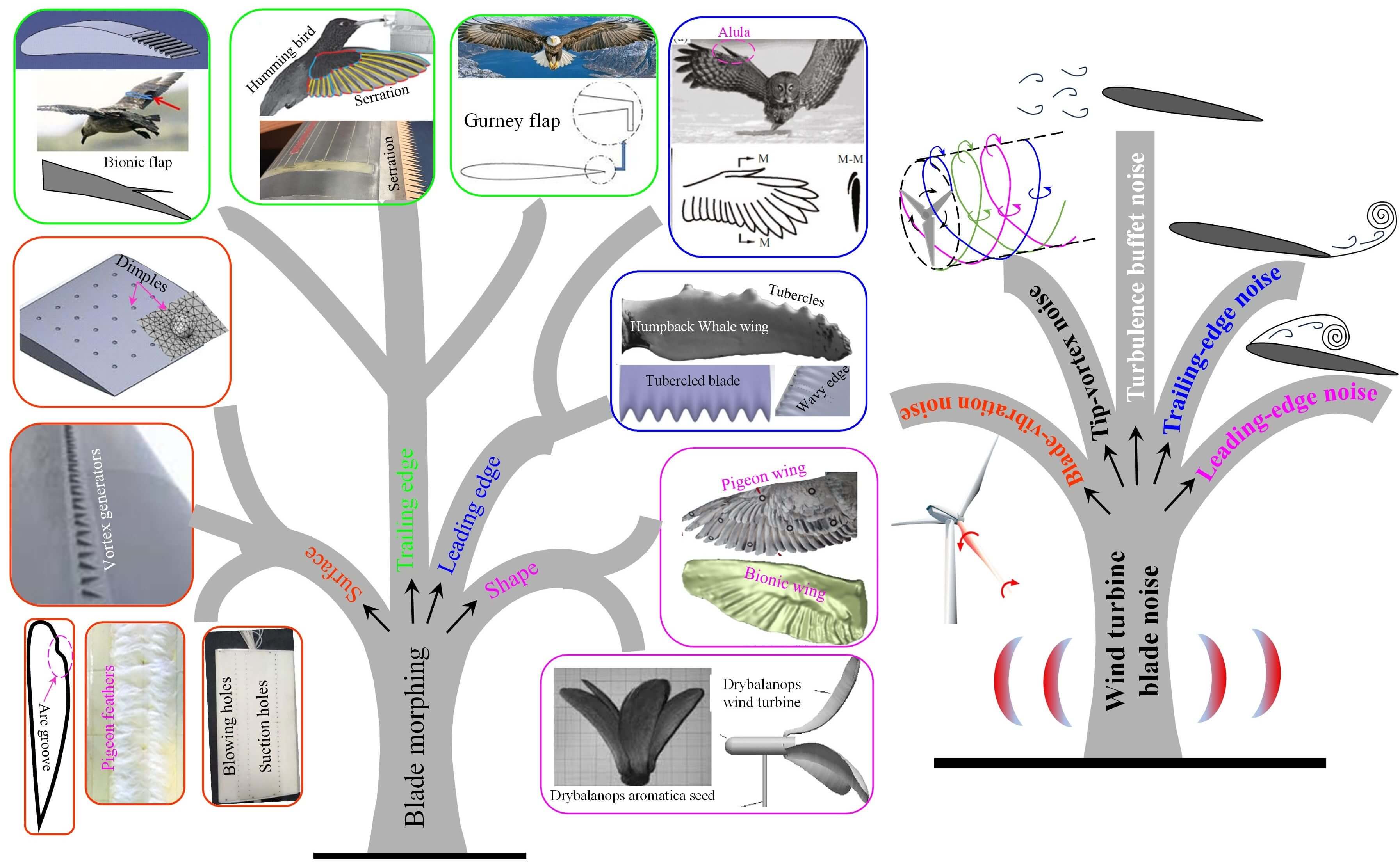 Open Access
Open Access
REVIEW
A Review of Wind Turbine Blade Morphing: Power, Vibration, and Noise
Center for Turbulence Control, School of Mechanical Engineering and Automation, Harbin Institute of Technology (Shenzhen), Shenzhen, 518055, China
* Corresponding Author: Md. Mahbub Alam. Email:
Fluid Dynamics & Materials Processing 2025, 21(4), 657-695. https://doi.org/10.32604/fdmp.2025.060942
Received 13 November 2024; Accepted 27 February 2025; Issue published 06 May 2025
Abstract
Wind turbines play a vital role in renewable energy production. This review examines advancements in wind turbine blade morphing technologies aimed at enhancing power coefficients, reducing vibrations, and minimizing noise generation. Efficiency, vibration, and noise levels can be optimized through morphing techniques applied to the blade’s shape, leading edge, trailing edge, and surface. Leading-edge morphing is particularly effective in improving efficiency and reducing noise, as flow attachment and separation at the leading edge significantly influence lift and vortex generation. Morphing technologies often draw inspiration from bionic designs based on natural phenomena, highlighting the potential of biomimicry to improve aerodynamic performance and energy capture. Understanding fluid-structure interactions is critical to ensuring the lifespan, performance, and safety of wind turbine blades, which directly affect operational efficiency and noise levels. This review underscores the importance of comprehending the interdependencies between aerodynamics, vibration, and noise to guide future research and policy in sustainable wind energy development. By summarizing key advancements in the field, this paper serves as a valuable resource for researchers, policymakers, and industry leaders involved in wind energy technologies.Graphic Abstract

Keywords
Cite This Article
 Copyright © 2025 The Author(s). Published by Tech Science Press.
Copyright © 2025 The Author(s). Published by Tech Science Press.This work is licensed under a Creative Commons Attribution 4.0 International License , which permits unrestricted use, distribution, and reproduction in any medium, provided the original work is properly cited.


 Submit a Paper
Submit a Paper Propose a Special lssue
Propose a Special lssue View Full Text
View Full Text Download PDF
Download PDF Downloads
Downloads
 Citation Tools
Citation Tools